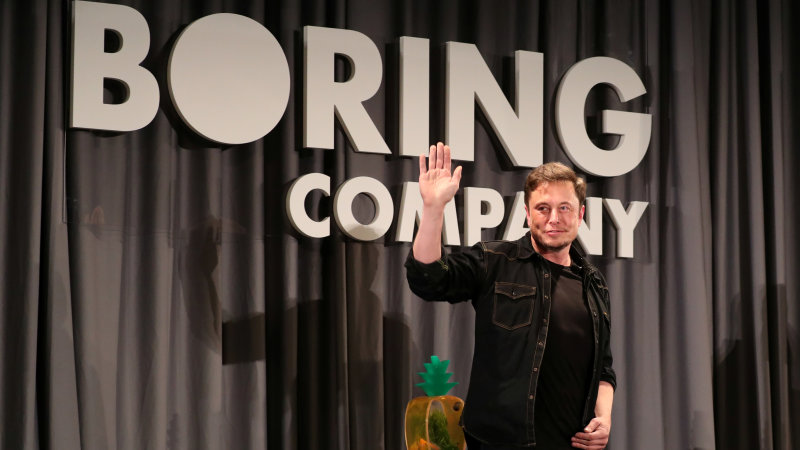A company owned by Elon Musk that is trying to lower the cost of building high-speed transit tunnels has asked the Trump administration to exempt it from tariffs for some Chinese-made tunnel boring machine components, warning the tariffs could significantly delay a planned tunnel between New York and Washington.
In a July 31 letter posted last week on a government website, the Boring Co asked the U.S. Trade Representative to exempt parts like cutterheads, screw conveyors and related machinery. Boring seeks “limited parts from China in the near-term for use in a small number of tunnel boring machines.” The letter added those parts are “readily available only from China.”
Privately held Boring added that it is “working to develop and manufacture our own tunnel boring machines” and wants to “restore the now-dormant American tunnel boring machine industry.”
The company said for planned tunnels, including a project between Washington and Baltimore, it will “use machines that are majority-composed of U.S. content.”
The tariffs could cause “severe economic harm” to the company and U.S. interests and could result in a delay of one to two years in the construction of a proposed Washington-to-Baltimore tunnel that it plans to eventually extend to New York.
Exempting the parts will not harm U.S. industry, the company said, and noted that tunneling is not one of 10 sectors identified in China’s “Made in 2025” plan. The company said its business model is “predicated upon substantially reducing the cost of tunneling.”
Musk, who is also chief executive of Tesla Inc, in June proposed building a $1 billion underground transit system in Chicago. The plan would send people from Chicago’s downtown Loop district to O’Hare International Airport at 150 miles (241 km) per hour.
The Boring Co has been promoting its plans for tunnels that would allow high-speed travel between cities. The company initially plans to ferry passengers between Washington and Baltimore on autonomous electric vehicles carrying 8 to 16 passengers at 125-150 miles per hour, but would not use tracks or railway equipment.
On Wednesday, the company proposed to build a 3.6-mile tunnel between Dodger Stadium in Los Angeles and the city’s subway system.
The U.S. Trade Representative’s Office and Boring did not immediately respond to requests for comment.
Boring said in an earlier letter it was converting from diesel-powered to electric-powered construction equipment and had innovated in “concrete mixing, segment production, excavation and hauling practices.”






